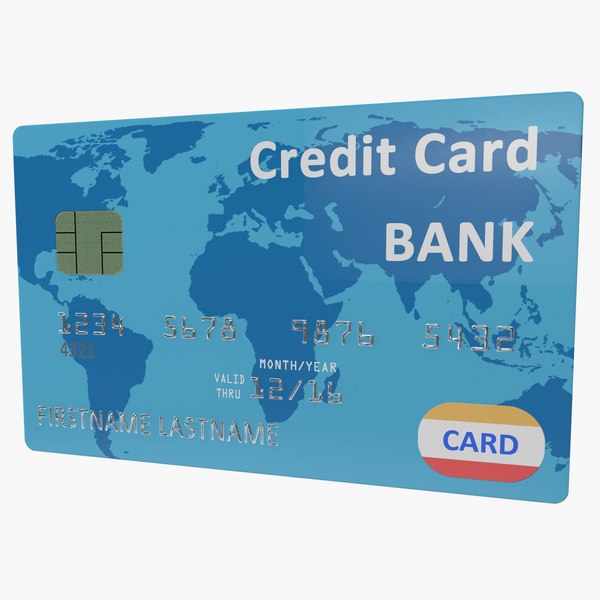 Having bad credit isn’t the end of the street — you can apply to get a second chance checking accounts. Second opportunity accounts are meant for applicants who have been denied a typical checking account. Throughout acceptance, the bank would consult with the ChexSystems database. ChexSystems is an information centre to that most banks report bad credit utilization. In case your data looks in ChexSystems, it means that you don’t have a good repayment history. If your name appears on this database, then your odds of having a checking account could be slim. A few credit unions and banks offer second opportunity accounts that will assist you rebuild a fantastic report. But, there is a disparity between these accounts and a normal checking account. Obviously, second chance checking accounts have tremendous advantages and a few disadvantages too. While they offer you a opportunity to rebuild your broken credit, they typically have pricey fees. In addition, you can’t utilize the overdraft feature because they are intended to demonstrate your financial discipline. The bright side of this account is that it is far better than secured credit cards or check-cashing.
Having bad credit isn’t the end of the street — you can apply to get a second chance checking accounts. Second opportunity accounts are meant for applicants who have been denied a typical checking account. Throughout acceptance, the bank would consult with the ChexSystems database. ChexSystems is an information centre to that most banks report bad credit utilization. In case your data looks in ChexSystems, it means that you don’t have a good repayment history. If your name appears on this database, then your odds of having a checking account could be slim. A few credit unions and banks offer second opportunity accounts that will assist you rebuild a fantastic report. But, there is a disparity between these accounts and a normal checking account. Obviously, second chance checking accounts have tremendous advantages and a few disadvantages too. While they offer you a opportunity to rebuild your broken credit, they typically have pricey fees. In addition, you can’t utilize the overdraft feature because they are intended to demonstrate your financial discipline. The bright side of this account is that it is far better than secured credit cards or check-cashing.
One perplexing factor which most individuals wonder is if taking out a loan may hurt their credit score. In a nutshell, your credit score is heavily reliant on the way you use your creditcard. Credit calculation is generally a complicated process, and loans can either boost or drop your credit score. If you don’t make timely payments, taking out a loan would be as excellent as tanking your credit score. Your credit report is a snapshot that creditors use to determine whether you are creditworthy. This fact could be counterintuitive as you will need a loan to build a positive payment history and report. Quite simply, when you haven’t had a loan previously, your success rate could be incredibly minimal. That said, you’ll want financing and a good credit use ratio to qualify for one. If you’ve cleared your invoices early before, they might consider you a creditworthy consumer. But when you have a history of defaulting, potential lenders may question your ability to pay. Taking out new loans might give you the chance to build your credit in case you’d damaged it. Since the amount of debt takes a massive chunk of your account (30%), you should pay utmost attention to it.
 One perplexing thing that most individuals wonder is whether taking a loan out may hurt their credit score. At a glance, loans and the way you handle them ascertain the score which you are going to have. Because credit calculation models are usually complicated, loans can either tank or boost your credit rating. If you pay late, then they’d certainly damage your credit if you don’t make subsequent payments on time. When issuing loans, lenders use your credit score to determine the kind of consumer you are. This truth may be counterintuitive since you will need a loan to construct a positive payment history and report. When this loan application is the very first one, your chances of success may be very slim. For this reason, you’re going to want a loan to be eligible for another loan. If you’ve had a fantastic payment history in the past, the loan issuer may consider your program. However, when you have a history of defaulting, prospective lenders may question your ability to pay. If you have damaged your report before, taking a new loan might help you restore it. Considering that the quantity of debt takes a huge chunk of your account (30 percent ), you ought to pay utmost attention to it.
One perplexing thing that most individuals wonder is whether taking a loan out may hurt their credit score. At a glance, loans and the way you handle them ascertain the score which you are going to have. Because credit calculation models are usually complicated, loans can either tank or boost your credit rating. If you pay late, then they’d certainly damage your credit if you don’t make subsequent payments on time. When issuing loans, lenders use your credit score to determine the kind of consumer you are. This truth may be counterintuitive since you will need a loan to construct a positive payment history and report. When this loan application is the very first one, your chances of success may be very slim. For this reason, you’re going to want a loan to be eligible for another loan. If you’ve had a fantastic payment history in the past, the loan issuer may consider your program. However, when you have a history of defaulting, prospective lenders may question your ability to pay. If you have damaged your report before, taking a new loan might help you restore it. Considering that the quantity of debt takes a huge chunk of your account (30 percent ), you ought to pay utmost attention to it.
Dependent on the FCRA’s provisions, you can retrieve and dispute any negative information on your report. The credit reporting agency is obligated to delete a disputed thing that’s found to be illegitimate. The three information centers — Experian, Equifax, and TransUnion — are more prone to making mistakes . The FCRA reports that roughly 1 in every 5 Americans (20%) have errors in their credit reports. Your credit report is directly proportional to a score, meaning that a bad report may hurt you. Because your score tells the kind of customer you are, you need to put heavy emphasis on it. Most loan issuers turn down programs since the consumers have a bad or no credit score report. Since your loan negotiation capacity will be crippled due to adverse entries, you need to delete them. By delinquencies to bankruptcies, compensated collections, and inquiries, such elements can impact you. Since damaging elements on a credit report may impact you, you need to try to eliminate them. Apart from removing the entries by yourself, one of the very best ways is utilizing a repair firm. Several consumers opt to utilize a repair company when they recognize they can’t go through all hoops. In this article, we have collated whatever you need to learn about credit restoration.
Your report is a snapshot of your debt scenario and debt volume. You will be eligible for a standard checking account if you have a fantastic credit history. If that’s not the case, you might need to go to get a checking account for bad credit. Besides, performing trades, closing the account, or having several accounts would not affect you. If you have an overdraft, clearing the fees on time would eliminate it in the report. In the event the lender turns the invoice to a set, then the overdraft might show up on the account. If you have any issues with regards to exactly where and how to use credit Tips, you can call us at the web-page. There are limited situations when a checking account will influence your score thinking of these factors. When applying for a checking account, a few banks may execute a soft inquiry in your report. Fundamentally, program for overdraft protection along with an inquiry could influence your credit score.
